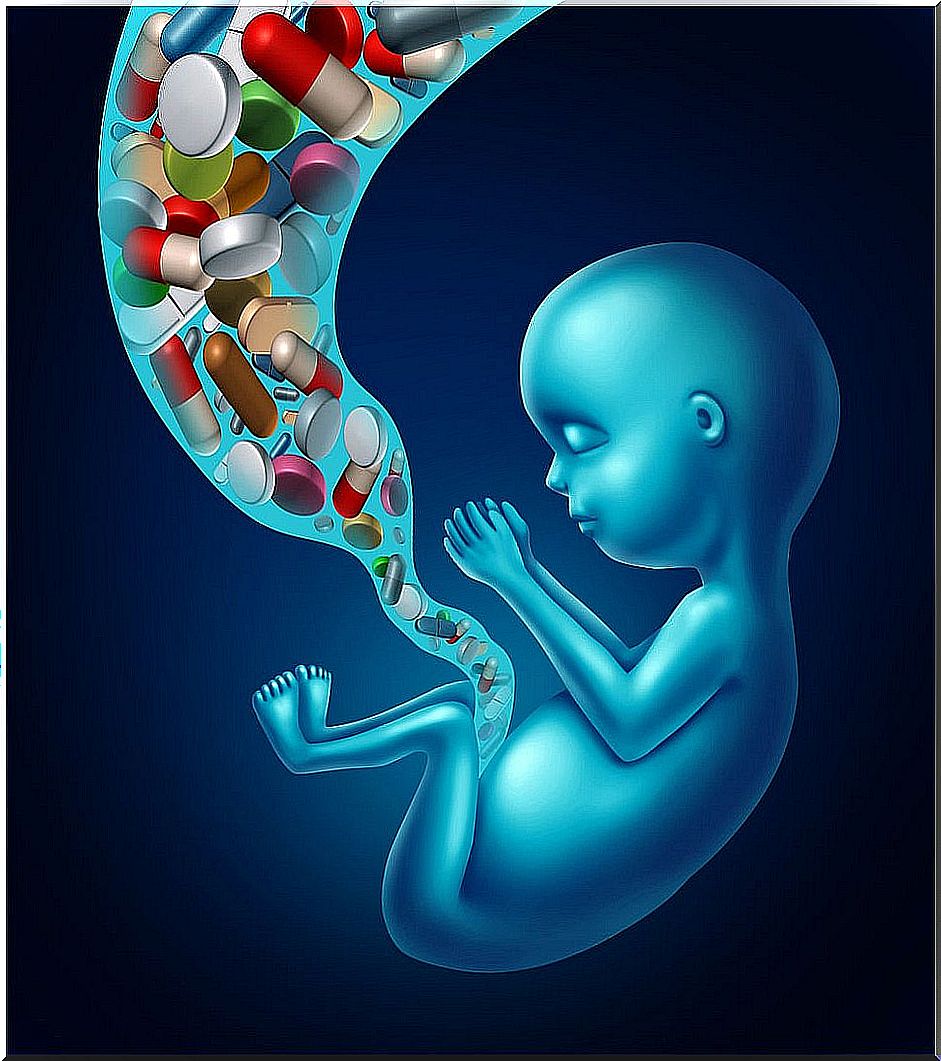Most Common Drugs In Pregnancy
The use of medications during pregnancy is necessary on many occasions. However, it is necessary to know their risks and effects to consume them safely.
In this article we detail everything you need to know about drug use in pregnancy. However, you should always consult with your doctor before performing a treatment.
Drug use in pregnancy
Today, drug use in pregnancy is high. It is estimated that in more than half of the pregnancies women take certain medications.
On many occasions, this use of medications is necessary. It does not have to cause problems if it is done as directed by a doctor. However, it must be taken into account that pregnancy is a very unique physiological state that requires many considerations.
During pregnancy, the body undergoes a series of physical, physiological and metabolic changes. These variations will condition the effect of the drug in the body, which has its pharmacokinetics modified.
Added to all this are the risks derived from the effect of the drug on the developing fetus. In most cases, the active substance of the drug is able to cross the placental barrier easily.
In the book Medications and pregnancy, it is indicated that with regard to pharmacokinetics and dosage, “a fundamental aspect to evaluate is the passage of the drug through the placental barrier, since it will determine its access to the fetal circulation.”
Potential risks to the fetus

First, not all drugs can cross the placenta and reach the fetus, but those that do, can carry risks for two reasons: they can have a toxic effect that alters the functioning of the fetal organs or they can have a teratogenic effect on the fetus.
However, even if the drug used is not able to cross the placental barrier, it can cause adverse effects on the fetus. It could alter maternal physiology, generating hypotension or causing constriction of placental blood vessels, among other things.
Regarding teratogenic drugs; are those that can cause congenital malformations in the fetus during pregnancy. For a drug to produce teratogenic effects, a series of circumstances must occur:
- That the drug is highly teratogenic.
- Taking high doses for long periods of time.
- That affect the fetus at certain times in its development.
In this context, the period of development of the fetus is very important. The risk of drug-induced malformations is much higher during the implantation period (first week of gestation) and organogenesis (first 8 weeks).
During this first trimester of gestation, fetal growth and the development of its organs take place. Thus, the presence of certain drugs can interfere with this organogenesis process and cause malformations.
Recommendations for the use of medications
- Restrict the consumption of medications during the first trimester of pregnancy.
- Consider the possibility of pregnancy before prescribing medications to women.
- Reassess drugs taken before pregnancy is confirmed.
- Use drugs considered safe and on which there is extensive experience.
- Reduce the doses and the duration of the treatment itself as much as possible.
- Monitor the appearance of possible complications.
- Avoid the administration of another type of additional medication.
Most common drugs during pregnancy

Analgesics, antipyretics and anti-inflammatories
They are the most widely used drugs to alleviate pain, fever or inflammation, some of the most common are:
- Paracetamol: widely used as it is considered one of the safest.
- Aspirin and other non-steroidal anti-inflammatory drugs (NSAIDs): considered safe during the first 2 trimesters of pregnancy. Discouraged in recent weeks for causing various complications.
Antibiotics
Antibiotics are necessary to treat bacterial infections during pregnancy. The use of penicillins is usually chosen, as it is considered one of the most studied and safe.
- However, we remember that it will be the doctor who will evaluate the state of health and pregnancy to prescribe the appropriate antibiotic.
Vaccines
Caution with vaccines is recommended. In addition, its administration is not recommended, especially during the first trimester of pregnancy.
In addition, there are certain vaccines that are indicated during pregnancy. For example, the flu vaccine, as a “prenatal vaccine” for the fetus.
Drugs against digestive diseases
There are many drugs administered during pregnancy to treat digestive symptoms. The most common are nausea, vomiting, or constipation.
- There are different options that are considered safe during pregnancy, with antacids being the preferred option.
Antihypertensive drugs
High blood pressure is a very common condition among pregnant women and can be a serious problem that carries serious health risks for both the fetus and the mother. Therefore, on multiple occasions it is necessary to administer antihypertensive drugs during pregnancy.
Now we have a rough idea of the most common medications during pregnancy. As we have learned, the greatest risk will be during the first three months. However, during the entire pregnancy we must be very careful with what we eat.









